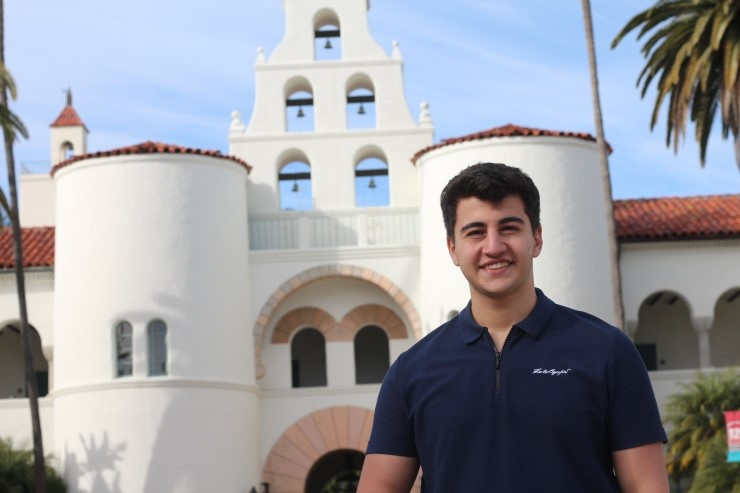SDSU Names First Chair for Sycuan Institute on Tribal Gaming

San Diego StateUniversity announced today that veteran casino entertainment executive Randolph Baker is the first chair of SDSU’s Sycuan Institute on Tribal Gaming, the country’s first research institute and academic curriculum exclusively focused on tribal gaming.
Baker has been involved in the expansion of the tribal gaming industry from its start. Currently, Baker serves as a member of the Board of Directors of Isle of Capri Casinos, Inc., one of the nation’s largest casino entertainment companies.
"I look forward to creating a program that will set the national standard for excellence in studying tribal gaming issues, and I am confident that we can achieve that objective," said Baker, who officially began his duties last week.
Among the most significant challenges, according to Baker, will be melding rigorous academic requirements with the gaming-management needs of Native American nations in ways that ensure their economic development and continued cultural, social and political identity.
"A particularly acute and vitally important component of this challenge will be to attract students of Native American descent into the degree program," Baker said.
Baker also has served as Harrah’s Visiting Professor of Gaming Studies at the University of Nevada, Reno, and as government relations officer for what is now Harrah’s Entertainment, Inc. While with Harrah’s, Baker was a part of a team that researched Indian gaming during the explosion of tribal and commercial gaming in the late 1980s and early 1990s.
Most recently, Baker has been executive director of the Shelby County Schools Education Foundation, a nonprofit advocacy group supporting enhanced public education in Memphis, Tenn.
"With Randy’s history and long list of credits, he will be a strong addition to our team of industry-seasoned faculty," said Carl Winston, director of SDSU’s Hospitality and Tourism Management (HTM) program, which houses the institute.
The Sycuan Institute on Tribal Gaming was established a year ago with a $5.5 million donation from the Sycuan Band of Kumeyaay Nation. The institute’s goals are to provide quality analysis of trends and issues affecting the industry, to help meet the tribal gaming industry’s increasing needs for highly trained professionals, and to serve as a point of engagement between gaming tribes and the wider community. The gift included funds for the endowed chair.
"Given the dynamic growth of Native American gaming in recent years, we are proud to be able to be the first university in the nation to provide both hands-on training for future tribal casino managers and 'arms-length' research about all issues – good and bad -- relating to Indian gaming," Winston said.
Baker credited Sycuan for having the foresight to fund the institute, which he said will have the ability to benefit Native American groups everywhere.
"As we have demonstrated through a number of initiatives in recent years, education is of paramount interest to the Sycuan, and because of the importance of Native American gaming as an economic development tool for the indigenous peoples of the United States, we are truly delighted to be the catalyst behind the Sycuan Institute on Tribal Gaming," said Nubia Ruiz, Director of Education for and a Member of the Tribal Council of the Sycuan Band of the Kumeyaay Nation.
"With the Institute's new chair now in place, we look forward to the creation of a program that will train the talent that Native American casinos will be needing for many years to come," Ruiz said.
Baker said the institute will begin work shortly on an oral history project for tribal gaming across the United States, focusing on the major leading roles played by the Seminole, Pequot, Cabazon and other Native American nations. Baker added he would like the institute to be responsible for creating the first "Tribal Gaming 101" textbook for academic and general use.
The Sycuan Band of Kumeyaay Nation operates a casino in El Cajon, an eastern suburb of San Diego. Nationally, more than 200 casinos are located on Native American reservations where permitted by state and federal law, including nine in San Diego County – the greatest concentration in the United States.



